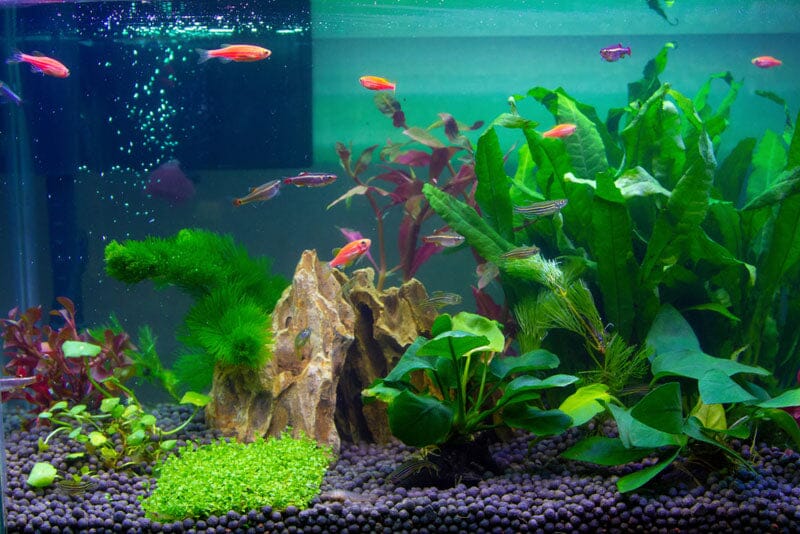The magic of the underwater universe can be captured and experienced right in your home through aquariums. Ensuring this mini-ecosystem flourishes hinges heavily on the filter system employed. We explore in detail the significance of aquarium filtration, the varieties of filtration, and how to properly maintain your aquarium's filtration system.
An Overview of Aquarium Filtration
At first glance, aquarium filtration may seem quite simple – it's just a system that cleans the water, correct? While that's partially accurate, filtration encompasses more than just tidying up the water. It's instrumental in managing the aquarium's comprehensive water quality. Filtration in an aquarium is an essential factor that ensures the health and vitality of your aquatic inhabitants and the aesthetic appeal of your aquarium.
Filtration Varieties in Aquariums
Aquarium filtration can be divided into three basic categories:
- Mechanical
- Biological
- Chemical filtration.
Each category fulfills a unique role in maintaining the best environment inside your aquarium.
Mechanical Filtration
Mechanical filtration is the process of physically capturing debris and particles in the water. Filters used in this process often consist of materials like foam sponges and fine mesh, and they can be found in many filter types, such as canister filters, sponge filters, under-gravel filters, and hang-on-back (HOB) filters.
Biological Filtration
Biological filtration plays an important role in the filtration system. It involves good bacteria breaking down harmful ammonia, a byproduct of fish waste, into less harmful substances - nitrites, then nitrates. This process, known as the nitrification process, is vital for maintaining a healthy aquarium.
Chemical Filtration
Chemical filtration is about removing impurities at the molecular level. This filtration type uses activated carbon, bio-balls, ceramic rings, and other absorbent materials to extract toxins and coloration from the water.

The Influence of Aquarium Filtration on Water Quality
Aquarium filters play a critical role in preserving the water's quality in your aquarium. Water filtration aids in regulating the nitrite and nitrate levels, ensuring the fish's survival and health. Unchecked levels of these compounds can cause diseases such as ich or white spot disease and even ammonia poisoning in fish.
The Effect of Filtration on Fish Health
Filtration has a direct impact on the health of your aquarium's inhabitants. Poor filtration can result in unhealthy water conditions, promoting bacteria and parasites that can injure your fish. Adequate filtration assures the health of your aquatic life by maintaining optimal water conditions and preventing diseases.
Selecting the Appropriate Filter for Your Aquarium
Selecting the appropriate aquarium filter relies on several factors, including the type of fish, the tank's size, and whether it's a freshwater or saltwater tank. For instance, sponge filters are often recommended as the best filters for small aquariums, while canister filters might be better suited for larger tanks. When choosing a filter, it's vital to do thorough research and select a filter suitable for your specific aquarium requirements.
Upkeep and Cleaning of Aquarium Filters
Regular upkeep and cleaning of aquarium filters are crucial for their long-lasting performance and efficiency. The cleaning frequency depends on the type of filter and the load in your aquarium. Overcleaning can remove beneficial bacteria, upsetting the balance in your aquarium. Always adhere to the manufacturer's instructions and clean only a portion of your filter at a time to maintain a healthy level of beneficial bacteria.
Advances in Aquarium Filtration Technology
The area of aquarium filtration has seen numerous advancements, resulting in more efficient and effective filtration systems. Modern filters offer energy-efficient operation, reduced noise, and smart functionality. Some leading brands in this field offer advanced features such as automated cleaning and maintenance reminders.
Frequently Asked Questions
Is there a risk of filtering my aquarium excessively?
Overall, providing more filtration than required doesn't pose a risk to an aquarium. However, remember that some types of fish prefer calmer waters, and a very powerful filter may generate too much water turbulence.
How often should I change the filter media?
The change frequency depends on the specific type of filter media and your aquarium's bio-load. As a general guide, follow the instructions provided by the manufacturer.
Can I use tap water to clean my filter?
This is not advisable. Tap water often contains chlorine, which could harm the beneficial bacteria in your filter. Using treated or aquarium water for cleaning is a safer approach.





